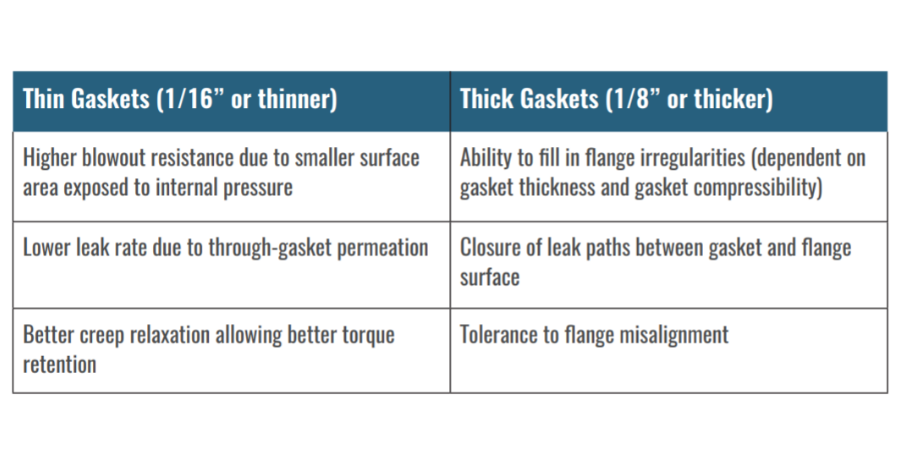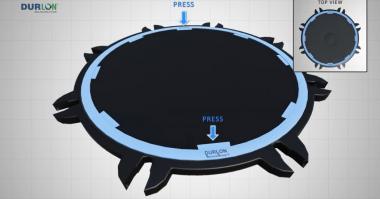Is thicker better? Well, when talking about gasket thickness it may not be. Depending on the type of gasket material being used, the size of the gasket, application parameters, and flange condition can affect the gasket thickness needed for your application.
Metallic and Semi-Metallic Gaskets
The thickness of metallic and semi-metallic gaskets is important for two reasons: constraints during manufacturing and handling of material. For example, a constraint during manufacturing could be that the gasket is too thick for the machine, while a flimsy, thinner gasket can become a handling issue.
Soft Gaskets
The pressure-temperature rating of a soft gasket is affected by the thickness. When a gasket is thicker, it will have a lower pressure-temperature rating compared to a thinner gasket. For example, a Durlon 9000 1/8” gasket has a lower pressure-temperature rating than a 1/16” Durlon 9000 gasket. It is always important to check PXT charts when selecting a gasket material.
When choosing a soft gasket, the flange condition will need to be taken into consideration. The thickness must be able to conform to flange irregularities such as flange damage, flange warping, uneven flange surfaces, etc. It is always important to reference PCC-1-2019 to determine if your flange condition is within tolerance.
Advantages Thick vs. Thin Soft Gaskets

Common Recommended Gasket Thicknesses
Standard Raised Face Flanges in as-new condition will typically follow these configurations
- 1/16” (1.5mm) gaskets up to 24” (600mm) nominal diameter
- 1/8” (3.2mm) gaskets greater than 24” (600mm) nominal diameter
Standard Flat Face Flanges
- Utilize 1/8” (3.2mm) gasket thickness due flat face flanges typically have less rigidity
Non-standard pipe flanges i.e., glass-lined steel or plastic
- Utilize 1/8” (3.2mm)
Large equipment flanges
- Utilize ¼” (6.4mm) gaskets due to uneven flange surfaces
Please contact your gasket manufacturer to determine the proper thickness needed for your application.


![Durlon Chemap® filters solve filtration tasks in a simpleand economic way [Case Study]](https://test.empoweringpumps.com/wp-content/uploads/2022/12/Durlon-Chemap®-filters-solve-filtration-tasks-in-a-simpleand-economic-way-Case-Study-7-380x199.png)


Comments